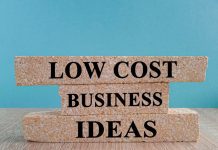What is the use of economic theory in business? This is essential. It is the essential starting point for all businesses, brands, and projects. Only when you master the theory can you master how to navigate specific situations and be confident in your decision-making and good judgment.
A Good Business Starts With A Good Theory.
Any kind of study of people – how they act, how they interact, what they try to achieve, and how they make decisions – requires theory.
This includes business, by definition. There must be a conception of what it means to be a human agent in the marketplace, of what it means to act and choose.
We cannot understand simply by observation. Therefore, companies must have a theory of human action.
Austrian Economics Provides This Theory In Its Axiom Of Action:
Human action is intentional behavior. Through action, people try to achieve something. As they choose to achieve this satisfaction, we can observe their choices.
But we need to use economic theory in business to understand the purpose they have in mind. Since they are not always successful, we do not always observe the end. We can interpret what they are trying to achieve, why they do it the way they did, the situational variables that influence their actions, and how they might react to the outcome.
Empirical observations and measurements are not only often impractical but can also be misleading. Furthermore, the theory tells us that they act in relation to everything they perceive – i.e. subjectively – that cannot be observed by a third party. It is the same phenomenon if we try to observe the actions of a company, maybe a competitor, because companies cannot be observed. Institutions are not observable.
An Example Of Several Theories Of Entrepreneurship Economics.
Media-result String.
Customers choose means to achieve their ends. Different customers have different purposes. The end means theory helps entrepreneurs understand the ends their customers seek.
Some customers in the automotive market seek the admiration of others by reporting their social success. They can choose a Ferrari or Bentley as their vehicle.
A construction business owner can look for efficiency and effectiveness in transporting materials and picking up a van.
Both customers make choices through the same means-purpose model, and their particular situations dictate different choices on their respective routes.
Diminishing Marginal Utility.
This theory assumes that in certain markets, a customer after purchasing one product or service may perceive a lower value for the next unit.
After purchasing a Ferrari to satisfy a need for social approval, to continue our analogy, the customer may not find the second as desirable as the first.
On the other hand, a construction business owner may see equal value in adding another truck as the business grows.
The case where the same pickup truck buyer can find diminishing marginal utility is in the proliferation of accessories and bundled features that he doesn’t find valuable.
Too many features bundled together may discourage purchases on the grounds of diminishing marginal utility.
These considerations are important for entrepreneurs in designing loyalty programs and discounts on multiple purchases.
Uncertain Use Of Economic Theory In Business.
Entrepreneurs exercise their judgment under conditions of uncertainty. Austrian economists use uncertainty theory to focus their theories on business performance.
In particular situations, entrepreneurs should apply theory by choosing which tools to use to overcome uncertainty, such as discovery and scaling tools, which define multiple tests to run (explore) and then widely deploy these (extended) operational experiences.
Network Theory.
Economies and markets are networks, and this theory considers the properties of tightly and loosely connected networks as well as networks that are connected in different ways.
This theory can identify the possibility of “structural flaws” in networks, where there are nodes that can be effectively connected but remain unconnected. Entrepreneurs in specific situations can determine if such a gap exists in their network and actively work to close the gap and increase their productive capacity, for example by connecting with new suppliers or new customers, or new resources.
Business Process Theory.
Entrepreneurship is a process and theory that can identify the most effective process methods and can use business history to reconstruct how manufacturing processes performed well in the past.
Entrepreneurs operating in the present and designing processes for the future can use process theory and its illustrated stories (Per Bylund calls this a “process biography”) to help them make the best design choices for the most efficiency.
For example, our N-A-B-C innovation process is a theoretical framework that each entrepreneur can apply in their own situation to come up with uniquely innovative solutions for their company and customers.
Take Time To Reflect And Time To Theorize.
Theorizing is hard and demanding work. It entails identifying the theories you actually use (consciously or unconsciously) in your own mental model, and then relentlessly questioning and testing them for internal consistency and external value. Are there any holes or weaknesses? Is there anything you don’t like? If so, you will work to revise your assumptions or find better things to add or extend the theory further.












